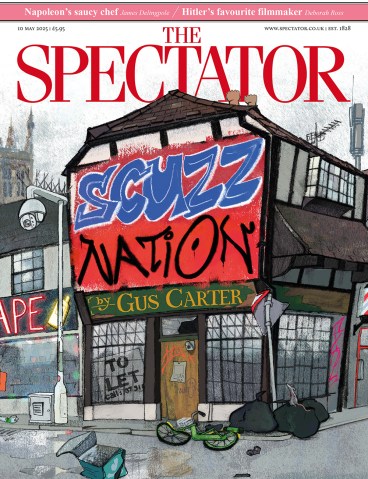
Melanie McDonagh has narrated this article for you to listen to.
Tried to send a parcel lately? Or a letter? If it involves a trip to a post office, all I can say is, give it time. A fortnight ago, I was posting a book to a friend and took it to the nearest post office – the central, City of London one. It’s housed in a convenience store: handy if you want a samosa but lacking dignity, somehow. All the electronic terminals were out of action, four or five of them. The queue was patient but prohibitively long.
Thinking bad thoughts about privatisation, I made my way to the post office in Kensington Church Street, which is a proper outfit; that was closed. I tried the Kensington High Street branch, but its machines were out of action too. I gave up. The next day I went to the big post office near Westminster; all its machines were working and there were actual people at the desks. Feeling spoiled, I posted the parcel and it arrived, eventually. Four post offices, one little parcel.
Then a couple of weeks ago I was given that thrillingly retro item, a cheque. I should have had it framed as a relic of a bygone era but I needed the cash, so I looked up the nearest post office branch in Soho where I was. My bank closed its branches in central London on the basis that customers could pay in cheques or cash at any post office. But when I got to the top of the queue the assistant told me that, sorry, it didn’t take cheques; however, if I made for the larger branch about 15 minutes away, it would help. Well, I didn’t have 15 minutes to spare so I made a special trip to a big branch the following day to pay the wretched cheque in. That took time.
You think it’s easier if it’s just a letter or card, for which you’ve got a book of stamps? Ha and ha. You belong to the era when you could nip down the road to the nearest letterbox from which an obliging postman would collect your letter by 5.30 p.m. or a little later if you were lucky. No longer. You have to be up early to catch a postman now – by 7 a.m. in some cases, by 9 a.m. in the rest. If you want to get your letter picked up for despatch that very day, you’re welcome to make your way to the nearest post office. Not convenient? Look, you’re missing the point: no one cares.
Then there’s the problem of actual deliveries. Before someone surfaces to tell me that since privatisation the sending of post and its delivery are the responsibility of two separate entities, the Post Office and Royal Mail, let me say that I know, and this is precisely the problem. In the old sane, state-owned entity, the buying of the postage stamp right through to the delivery of the thing it was stuck on was overseen by one body, under the control of a government minister. Since privatisation these functions have been unnaturally separated. That’s one reason why it works so badly.
Last week, shareholders approved Czech billionaire Daniel Kretinsky’s £3.6 billion takeover of Royal Mail’s parent company. Even if you don’t mind a critical bit of social infrastructure going into foreign ownership – and neither the government nor the Tories have an issue with that – you may like to note the Royal Mail’s proposals for deliveries.
The regulator, Ofcom, is suggesting the postal company should scrap second-class letter deliveries on Saturdays and reduce the service to alternate weekdays, while also lowering Royal Mail’s delivery targets. Natalie Black, its communications director, explained earlier this year: ‘The world has changed – we’re sending a third of the letters we were 20 years ago. We need to reform the postal service to protect its future and ensure it delivers for the whole of the UK.’
Since when did halving the frequency and efficiency of a service equate to reform? The world has changed, has it? Let me tell you what hasn’t changed: if you double the price of a service in five years and reduce it from six days a week to three, then demand will drop.
That brings me to the other bit of the equation: the price of stamps. At the beginning of last month, the price of a first-class stamp rose to £1.70 and that of a second-class stamp to 87p. In 2020, a first-class stamp was 76p. And you wonder why people are sending fewer letters. It’s not just that texting and email have made communication easier, it’s that it’s unaffordable for most people to post letters routinely. An entire mode of communication has been priced out of existence.
Recently I’ve been going through archives from the last century, caches of letters, all referring to catching the post and sending replies by return. Email isn’t the only thing that has killed that off. It’s the political class who presided over the destruction of a historic service. You absolute creeps.









Comments